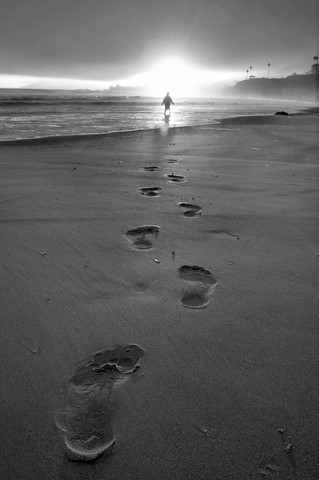What Are We Busy About?
- posted in Leadership

“It is not enough to be busy,” said Henry David Thoreau. “So are the ants. The question is: What are we busy about?”
We all know the feeling that says, “If I sit down, I’ll never get up!” All successful journeys are like that, whether the sitting down is literal or figurative. Remember civil rights activist Rosa Parks? She refused to surrender her bus seat to a white passenger, supporting the Montgomery boycott and other efforts to end segregation. In other words, she sat down to make a big difference.
When situations occur, don’t think about all the work ahead. Just ask yourself, “What is my highest expression of Self, now?”
And in terms of momentum? Sir Isaac Newton’s first law of motion basically states that a body at rest tends to remain at rest, and a body in motion tends to remain in motion, unless acted on by an external force.
This is also true of human activity.
So if you want to reach your objective, keep moving. Otherwise, it could take a lot of work to pry you from that state of rest.
Many Americans are so excessively busy you may question their need for this advice. Aren’t they always in motion? But what kind of motion is it? I’m not talking about going through motions for their own sake. I’m talking about forward momentum.
Some motions people go through in life are merely circular. These motions take them back to the same points every day: bed to kitchen to car to work to kitchen to couch to bed, and back. But leaders, while they might go through some of those motions, also take motions that create upward momentum. They learn a new skill, visit a new country, start a new project, create a new business, and then they keep moving to execute and implement those new things.
Leadership is not about robotic motion, rather it is about inspired movement toward goodness.
Some people step outside the circular dance, now and then, simply to laugh, love, and play. That’s life-giving momentum, too.
Whatever you’re busy doing, ask yourself: Am I moving forward in a meaningful way toward my authentic Self-expression? If the answer is yes, then keep moving in that direction, at the pace that suits your heart and mind.
Velocity has a grace and flow that can create a joyful atmosphere. Do you remember the last time you worked on a project that had that kind of momentum? The very air around everyone involved felt electrified, didn’t it? As a leader, that’s the environment you want to deliberately and consciously create. You don’t just wait for it to happen.
At times I’ve had to reach into my gut for the courage to take the next step. I have felt resistance in the strangest ways, whether I am attending a meeting, speaking my truth, or presenting to a large group. This resistance is good, if we will use it for our depth and growth as a Soul Centered Leader. Many times, when I have stepped through the greatest obstacles, I have experienced the largest result or upside.
That next step is where the maturity of leadership prevails. You will grow as you keep stepping past the limitations you perceive yourself to have. That’s why many leaders become spiritually more mature as they get older: not because their body or brain is at its peak, but because they step through their challenges, fear and resistance and build a muscle of leadership that demonstrates wisdom and strength.
We can make life easier by only focusing on the next ordinary step. Everything worthwhile in life offers the opportunity to discover grace in each and every step. If you need a reason to take the next step, envision your reward: the extraordinary achievement of true self-satisfaction and service to others. We are not talking about mindless action herein, rather we are talking about the balance and wisdom of true leadership. At times, the discipline is in slowing down, listening and paying attention to what is most necessary.
Trust your Self, listen, act and lead.
Blessings,
Stephen Paul

